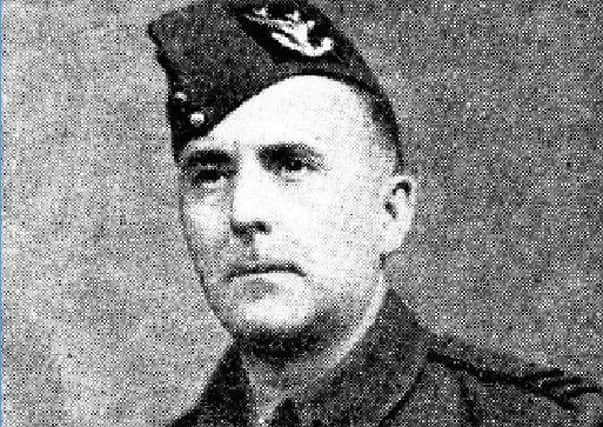Nostalgia - The Headmaster who forged a fighting unit


Set in the fictional seaside town of Walmington-on-Sea, on the south coast of England, Jimmy Perry and David Croft’s series provided an endearing, as well as an enduring, vision of the British Home Guard during the Second World War.
And while Captain Mainwaring, Sergeant Wilson, Corporal Jones and the rest of the platoon remain etched in our or memories, the Home Guard in reality was a fighting force seen as vital to protecting the home front.
Advertisement
Hide AdAdvertisement
Hide AdAll were volunteers and their role was to defend the 5,000 miles of Britain coastline in the event of an invasion by Germany.
Originally called the Local Defence Volunteers, many of the men who joined the Home Guard were those who could not join the regular army because their day time jobs were necessary to keep the country running.
They included farm workers, bakers, teachers, grocers, bank staff and railway workers. Other men who joined were either to young or too old to join the regular services.
And in the darkest years of the war, the Lewis battalion emerged as an exemplary unit.
Advertisement
Hide AdAdvertisement
Hide AdAnd its value to the war effort was underlined on New Year’s Day 1942 when its commanding officer, Lieutenant-Colonel John Macsween MA, JP, was made an Officer of the Order of the British Empire (Military Division) in the list of honours conferred by the King.
Lt-Col Macsween, the headmaster of Aird Public School, was a native of Garrabost.
In the Great War he served with the Cameron Highlanders and rose to the rank of Captain.
For a time he held an appointment as assistant superintendent at GHQ of physical and bayonet training.
Advertisement
Hide AdAdvertisement
Hide AdHe was mentioned in despatches for gallant and distinguished services in the field.
From the formation of the Home Guard in Lewis, Colonel Macsween played a leading part and, at an early stage, became commanding officer of the Battalion.
His Majesty’s recognition of Colonel Macsween’s magnificent work for the Home Guard delighted the community as he had worked tirelessly to make the unit an effective one.
Although the award was a military one, and was primarily in recognition of Colonel Macsween’s work for the Home Guard, there were other spheres in which he had given service to the community equally noteworthy.
Advertisement
Hide AdAdvertisement
Hide AdThe work of his navigational classes at Aird - both day school and night classes - had frequently been praised in reports by HM Inspectors, and had inspired education committees in other parts of the north to introduce similar courses.
These navigational classes were to prove their value from the national point of view between 1939-45 through the-large-number of Aird lads qualified to hold commissions in the Navy.
The honour could also be read—as Colonel Macsween would probably have preferred that it should be—as a compliment to the Lewis Battalion of the Home Guard.
In a broadcast in 1941, the Battalion was hailed as the “most democratic in Britain” and it had also been described as one of the most enthusiastic by no less an authority than the Home Guard Director General, Major-General Viscount Robert Bridgeman.
Advertisement
Hide AdAdvertisement
Hide AdSpeaking in Stornoway Town Hall after witnessing large scale manoeuvres, Viscount Bridgeman told the Stornoway Gazette: “The sight of this company tonight confirms me very much in my view that there is nothing wrong with the Home Guard.
“The sight of so many of the younger people learning their soldiering from the veterans of the last war, makes me think that in these parts at least there is no need for compulsion.
“The voluntary system is quite good enough, and we can treat the Home Guard not as a place for pressed men but as a body of sensible and thinking citizens who realise the need to prepare for emergencies and are not behind hand in coming forward.
“So, generally, I shall go back to the War Office, taking with me very pleasant and encouraging memories of my visit to this Island.
Advertisement
Hide AdAdvertisement
Hide Ad“And, let me say, if I may, that I feel you have in Colonel Macsween a first-rate commanding officer—in whom we all can have every confidence; and I know that he and your group commander and the other senior officers will leave nothing undone to make you an efflcient and a happy battalion.”